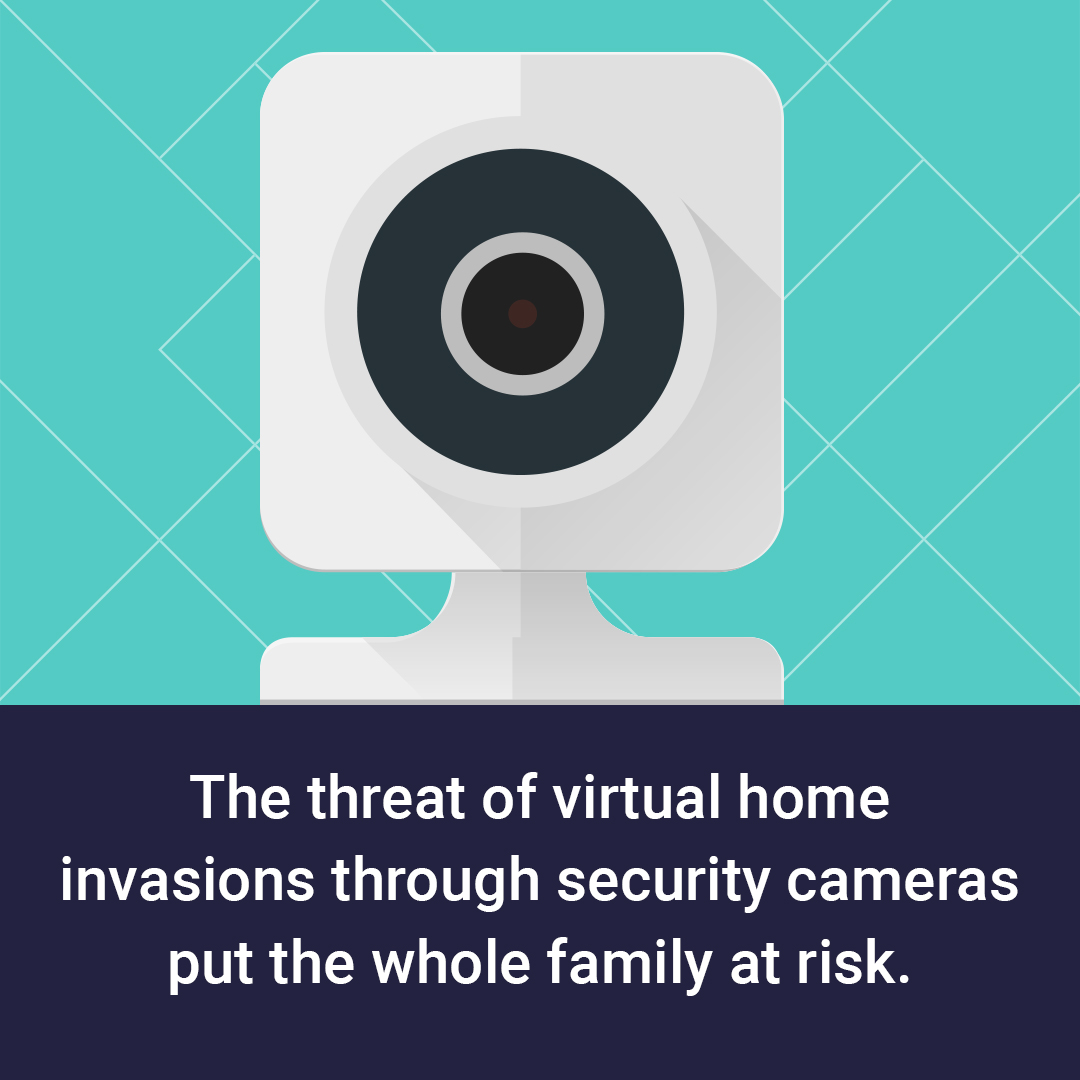NOT Home Alone: Five Tips to Secure Your Smart Security Camera Privacy Protection Begins at Home

If there’s any comfort to the coronavirus “shelter in place” policy, it’s that your family is gathered under one roof, with the dangers of the world outside. Sure, your kids may be bored, squirrely, or underfoot while you’re trying to get work done, but they’re at home and safe, right? Perhaps not so much. First, you have to be on the lookout for COVID-related scams targeting homebound seniors and kids. Then there’s the Zoombombing and other risks to worry about. And, as if that’s not enough, there’s the threat of virtual home invasions through our smart security cameras, putting the whole family at risk.
You may remember this little horror story from last December, an 8-year-old girl was playing in her room when a voice started speaking to her through a Ring camera. “I’m Santa Claus,” the man’s voice said. “Don’t you want to be my best friend?” This scenario is every parent’s nightmare, and but this isn’t the only way hackers are leveraging these security devices to make people insecure. Smart cameras have been used for racist harassment, to make physical threats and ransom demands, and even to broadcast stolen footage as a form of cruel entertainment. The hackers can see and hear a house’s occupants through the devices, so they can also lurk and record video or conversations that could be used to embarrass or coerce victims, or to overhear personal discussions and other information that could be used for fraud or identity theft.
The more homeowners and renters install smart home security systems, the more opportunities there are for hackers to abuse them. But your security system doesn’t have to put you or your loved ones at risk.
You can avoid the angst with these simple tips:
- Practice good password hygiene. Hackers are targeting people who reuse passwords. With all the huge data breaches in recent years, chances are that you’ve had at least one password stolen. If you have used the same password for your security system, then you are at risk. To prevent this, never reuse passwords, change them regularly, and don’t store them on your computer unless it’s through a secure password manager. Make sure to use strong passwords that include upper- and lower-case letters, numbers, and symbols, or use a secure password generator.
- Set up two-factor authentication for the security system. Two-factor authentication is becoming more common now, and not just with online financial platforms. Most security systems require you to opt into this service, so do it! Once it’s set up, logging into the system will require a password plus a code sent to your email or texted to a mobile device, providing a level of fraud protection against account takeover.
- Purchase comprehensive identity protection. According to Newsweek, most Ring accounts have been hacked using previously-exposed credentials. A good identity protection plan such as MyIDCare will alert you if your information has been compromised in this way, so you can change your password before there’s any trouble. Identity monitoring helps you prevent problems, and an expert identity recovery team will help you if your identity is compromised.
- Delete your security camera footage. Since you can’t be sure whether your system has been hacked or not, you don’t know whether someone has access to download footage of your home. It’s best to delete all of your old security footage every time you change the password. (Put a recurring reminder on your phone to do both regularly.) If the footage isn’t stored in your account, then hackers can’t access it.
- Update your software.With recent smart security system hackings in the news, the app makers and service providers are releasing regular security updates. Check your security apps monthly for updates and install them promptly.
With all the stress of the pandemic right now, it would be great if home were a perfect sanctuary from the insecurities of life. In reality, life had its risks and struggles before COVID-19, and it will have them after the coronavirus is a distant memory. But by building good security habits now, your smart home can become a safer place.
About IDX
We're your proven partner in digital privacy protection with our evolving suite of privacy and identity products.




